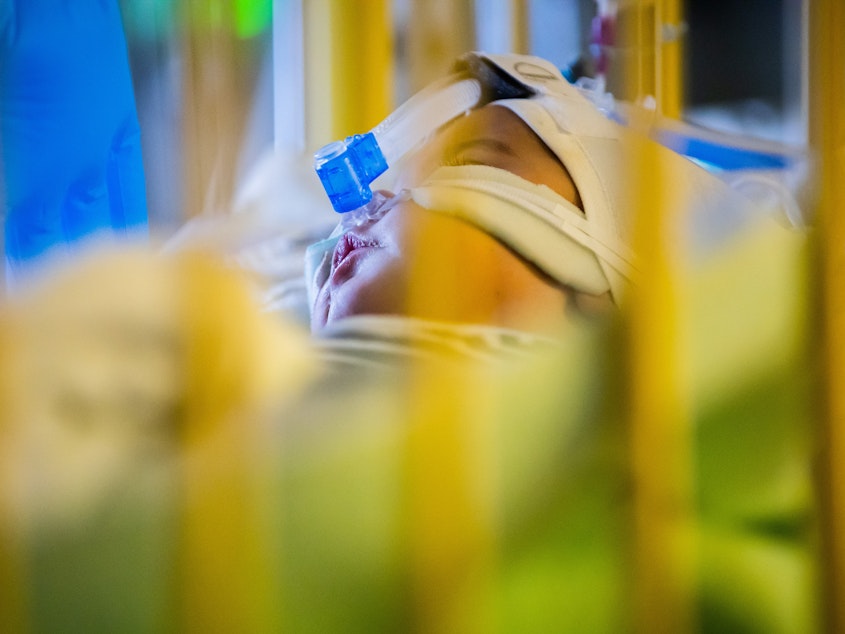FDA advisers endorse new RSV antibody drug for babies

A panel of advisers to the Food and Drug Administration have recommended that the agency approve a new antibody drug to protect infants from serious lung illnesses caused by respiratory syncytial virus, also known as RSV.
On Thursday, the panel voted in favor of FDA approval for the injectable antibody medication – called nirsevimab – after hours of testimony from the drugmaker AstraZeneca, FDA scientists and the public. The question before the panel was whether the benefits of the treatment outweigh the risks.
The drug, if approved, would offer babies protection from the virus in their first RSV seasons with a single shot. It would be more affordable and more widely available than the single existing preventive drug – a monoclonal antibody shot called palivizumab – which requires monthly administration and is reserved for babies at high medical risk.
There was unanimous support on the 21-person committee for approving the drug's use in infants ahead of or during their first RSV season. And, in a separate vote, all but two members of the panel supported giving the drug to infants with medical risks through their second RSV season.
"This is one of the most important infectious diseases in the pediatric population," said Dr. Mary Anne Jackson, a pediatrician at Children's Mercy in Kansas City, Missouri and a voting member.
Sponsored
Members of the committee said the data presented by the drugmakers, AstraZeneca and Sanofi, and the FDA demonstrated that nirsevimab appears to be safe and effective.
RSV is a viral infection that puts between 58,000 to 80,000 young children in the hospital each year, making it the leading cause of hospitalization among infants in the U.S. According to AstraZeneca's analysis, most RSV hospitalizations could be prevented with use of this drug.
"This is a pathogen that has a substantial impact on the lives of young children, causing significant morbidity and mortality" and limits the ability of children who are sick with other illnesses to get medical care, says Dr. Steven Krug, a pediatric emergency physician and professor at the Northwestern University Feinberg School of Medicine.
In two clinical trials, involving nearly 3,000 babies, a single shot of the monoclonal antibody reduced the risks of an RSV case that required medical attention by 70-75%, and lowered the risks of hospitalization by 60-80%. High levels of the antibody persisted for at least five months. Side effects, including rashes and fevers, were uncommon and generally mild.
"Overall, all committee members were impressed with the conduct of the study and the clean results that were presented," said Dr. Lindsey Baden, an infectious diseases physician at Brigham and Women's Hospital in Boston and chair of the FDA's Antimicrobial Drugs Advisory Committee, "The committee believes this is an important advance."
Sponsored
While the FDA isn't required to follow recommendations, it usually does. The agency is expected to decide in the third quarter of 2023.
If approved, the CDC's Advisory Committee on Immunization Practices is expected to weigh in with recommendations on how the drug should be used in specific populations. The companies say they're ready to launch the preventive shot in the U.S. ahead of the 2023-2024 RSV season, if the product clears the regulatory process by then.
It's expected to be priced similar to a "premium vaccine course" and would be sold under the commercial name "Beyfortus," said Jon Heinrichs, an executive at Sanofi. The antibody was approved last fall by authorities in the EU, and is currently being considered for use in several Asian countries.
The FDA is also considering other drugs and vaccines in development that would help protect babies from RSV. They're expected to issue a decision on an RSV vaccine for pregnant mothers by late August.
Will Stone edited this story. [Copyright 2023 NPR]



